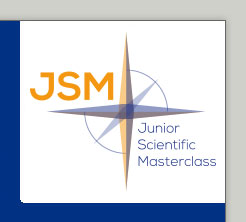Onderzoeksproject aanpassen
Projecten zijn uitsluitend aan te passen door bij het project behorende onderzoekers.
Geef via het uitrolmenu aan welke onderzoeker u bent. Nadat op u de button 'Edit project' heeft geklikt, wordt automatisch een e-mail verstuurd naar het e-mailadres van de onderzoeker die u heeft gespecificeerd.
In deze e-mail staat een link waarmee u het project kunt wijzigen.
Project properties
| Title | Quality of life, cognitive function, and physical fitness of melanoma and NSCLC patients surviving more than 2 years after immune checkpoint inhibitor therapy |
|---|---|
| Keywords | health-related quality of life Survivor care Immune checkpoint inhibitors |
| Researchers |
Dr. J. Nuver |
| Nature of the research | This study is an observational cross-sectional study investigating the health-related quality of life (HRQoL) and long-term toxicity of patients surviving 2 years or more after initiation of immune checkpoint inhibitor therapy for melanoma or non-small cell lung cancer (NSCLC). |
| Fields of study | immunology oncology internal medicine |
| Background / introduction |
|---|
| Tremendous anti-tumor effects have been achieved using immune checkpoint inhibitors for various solid malignancies in recent years. In patients with NSCLC and melanoma long lasting responses of more than 2 years (or even cure) occur in a substantial subgroup of patients. Overwhelmed by early successes of this approach, still little is known about the long-term and late side-effects of immune checkpoint inhibitor therapy and the impact of this treatment, and of previous or subsequent therapies, on health-related quality of life. Careful and thorough assessment of the long-term burden of disease and treatment toxicity is required. We need this information to guide follow-up and implement intervention strategies to improve quality of life of long-term survivors. |
| Research question / problem definition |
|---|
|
Primary objective: To investigate health-related quality of life (HRQoL) of patients surviving more than 2 years after immune checkpoint inhibitor therapy. Secondary objectives: To assess possible late effects, to examine physical condition and muscle strength, psychological issues, and quality of life of caregivers. Moreover, the burden of concomitant or sequential cancer treatments (surgery, radiotherapy, other systemic therapy) will be evaluated. |
| Workplan |
|---|
|
Study participants are subjected to a single assessment of quality of life, neurocognitive function, endocrine health, gastro-intestinal problems, dermatologic disorders, sexual health, and problems related to fertility/work and income/family life. This assessment takes place at the outpatient clinic of the department of medical oncology of the UMCG. The study has already started in October 2018; patient accrual will continue for at least one year. Research student: As a research student you will be asked to inform and include new patients for this study, perform the study measurements, fill in the research database, and analyse and interpret the results. You will join weekly research meetings to discuss your progress and hypotheses. Finally, you will write your research report. There are also opportunities to publish your results in a paper. So, this research project provides a good chance to improve your research skills. If you are interested or would like to gain more information about this project, please contact Dr Janine Nuver: j.nuver@umcg.nl |
| References |
|---|
|
Programmed Death 1Antibody, BMS-936558, ONO-4538) in Patients With Previously Treated Advanced Non-Small-Cell Lung Cancer (2015). Journal of Clinical Oncology; 33, 2004-2012. 2. Postow MA, Chesney J, Pavlick AC, et al. Nivolumab and ipilimumab versus ipilimumab in untreated melanoma (2015). The New England Journal of Medicine; 372, 2006-2017. 3. Maio M, Grob JJ, Aamdal S, et al. Five-year survival rates for treatment-naive patients with advanced melanoma who received ipilimumab plus dacarbazine in a phase III trial (2015). Journal of Clinical Oncology; 33, 1191-1196. 4. Aaronson NK, Ahmedzai S, Bergman B, et al. The European Organization for Research and Treatment of Cancer QLQ-C30: A Quality-of-Life Instrument for Use in International Clinical Trials in Oncology (1993). J Natl Cancer Inst; 85 :365-376. |


